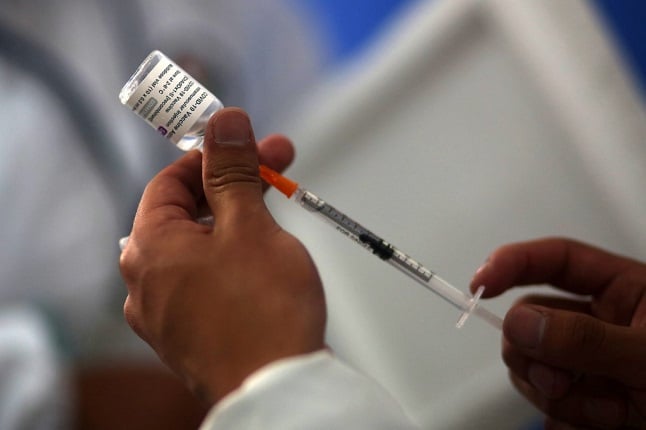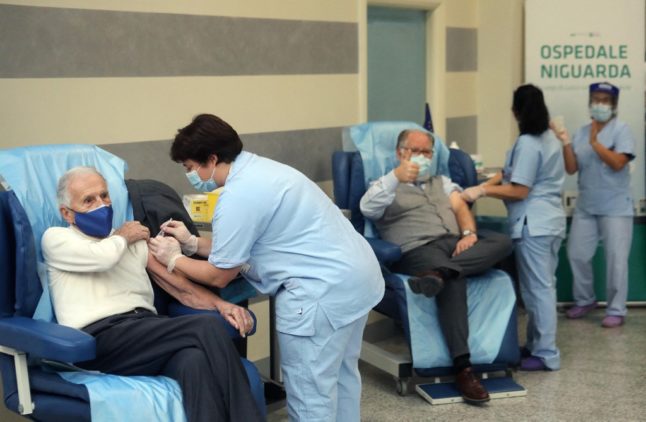In Austria, you need proof of 2G (vaccination or recovery from Covid-19) in order to enter the country, to avoid the current lockdown (which is in place for people without 2G only), and to access many services ranging from hotels to restaurants to ski resorts.
The rules for entry are the simpler of the two. Vaccinations with approval from the EMA or from WHO are accepted, which includes Sinopharm and Covishield for example. You can see the full list here. You need at least 14 days between doses, and no more than 270 days can have passed since your most recent dose.
For domestic use, for example at hotels, restaurants and ski resorts, the rules are a bit more complicated because in general, only EMA-approved vaccines are accepted as 2G proof. But there are some workarounds.
According to Austria’s National Vaccine Committee, people with a non-EMA approved vaccines can carry out a test for antibodies and receive a dose of an EMA-approved mRNA vaccine (that’s Pfizer or Moderna), at least one month after the previous course of vaccines. This combination is valid as 2G proof for 270 days from the date of your EMA-approved vaccine, according to the Health Ministry. It’s important to note that your mRNA vaccine will be considered a first dose in Austria, and neither this nor an antibody certificate alone is sufficient as proof as 2G, but the combination can be used in this situation.
We have heard one success story from a reader who received two doses of the Sinopharm vaccine, an antibody certificate, and a booster of the Pfizer vaccine. They were able to upload their vaccination documents into Austria’s Green Pass app (but not the antibody certificate) and they were considered valid. This reader was vaccinated in Serbia, a country which has made its documents valid with the EU Covid Certificate.
We have also heard from readers who have two doses of a non-EMA approved vaccine and a single dose of the Johnson & Johnson vaccine. According to the information currently available from the Health Ministry, it is unfortunately not clear that this would be accepted as 2G proof in Austria.
Domestically, it is the staff at the businesses you visit who have the responsibility for checking your proof of vaccination in most cases. Austrian police are also authorised to carry out checks of 2G proof.
It might be preferable if possible to get Austria’s Green Pass (or a different EU Covid Certificate) as staff will be familiar with these, and you can get foreign vaccine proofs converted by doctors for a fee. Whether this is possible will depend on the vaccines you have. This shouldn’t be necessary, though. The Health Ministry has told The Local that foreign proofs of vaccination are accepted as 2G as long as they comply with Austria’s rules, including being written in German or English and containing complete information about your vaccine, and as long as they are official in the country of issue.
If you or a relative experience difficulties having a non-EU vaccination certificate accepted as proof of 2G in Austria, or if you are successful in getting 2G proof using a non-EMA approved vaccination, you can let us know by emailing [email protected] so that we can follow up with authorities and keep Austria’s foreign residents and visitors informed.
We have heard from one reader who had two doses of the Sputnik vaccine, an antibody certificate and one dose of Pfizer. They have travelled to and from Austria several times during the pandemic with this proof, but on one occasion the border official told them their proof was not sufficient. This reader was ultimately allowed to enter the country, and it’s worth being prepared with proof of what the government has said about non-EMA approved vaccines (for example at some of the links below) in case you are questioned.
Please note: The Local cannot issue legal or medical advice and we always recommend you speak to a doctor or health authority for medical advice.
Useful links
Coronavirus FAQ – Austrian Health Ministry (go to the question ‘Was gilt für Personen, die ihre Corona-Schutzimpfung mit einem nicht von der EMA zugelassenen COVID-19 Impfstoff erhalten haben?’)
Rules on entering Austria (Health Ministry – available in German only)
Austria’s current Covid measures (Health Ministry – available in German only)
Editor’s note: We have updated this article with a correction. Sputnik is not on the list of vaccines approved by WHO



 Please whitelist us to continue reading.
Please whitelist us to continue reading.
Member comments